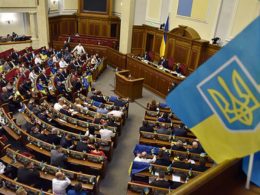Russia may have imported sanctioned goods worth billions of dollars using a "false transit" scheme, according to an investigation by Russian website "Important Stories" published on 17 October 2024, RFE/RL's Current Time reports. The investigation suggests that in 2023, goods valued at nearly $5 billion were shipped to Russia after being initially destined for Central Asian and Caucasus countries.
The scheme, as described by the investigation, involves manipulating shipping documents for goods transiting through Russia. According to Alexei, an employee at a company importing sanctioned goods to Russia,
"When the cargo passes, for example, the Polish border, the carrier simply crosses out the 'place of delivery' field and writes 'Russia, Moscow' instead of, say, 'Kazakhstan, Almaty'."
The investigation found numerous customs declarations in the Russian customs database where the sender was listed as a country in China, Kazakhstan, or Azerbaijan, but the goods entered through the Russian or Belarusian border with the European Union.
Using data from the UN Commodity Trade Statistics Database (UN Comtrade), the investigators estimated that in 2023, goods worth over $14 billion from the HS code groups 84, 85, and 87 were sent from the EU to Kazakhstan, Kyrgyzstan, Uzbekistan, Tajikistan, Turkmenistan, Mongolia, Armenia, Azerbaijan, and Georgia. However, these countries reported receiving goods worth just under $9 billion, suggesting that "goods worth $5 billion disappeared somewhere along the way."
The above-mentioned groups stand for:
- Machinery and mechanical equipment – includes nuclear reactors, boilers, and parts.
- Electrical equipment and devices – covers electrical machinery, sound systems, TVs, and related parts.
- Railway equipment and traffic systems – encompasses locomotives, rolling stock, tracks, and signaling devices.
The investigation identified several Russian companies allegedly using this scheme, including some previously sanctioned firms such as Quasar, Spetsvoltazh, ITC, and Severnaya Zvezda. Quasar reportedly uses services from companies in Azerbaijan and Türkiye, as well as China's Yusha Group Co and Hong Kong's Dongfeng International Group.
The "false transit" scheme allegedly allows for the import of prohibited goods, including microchips from American companies like Texas Instruments, Analog Devices, and Qorvo. In 2023, Quasar reportedly imported goods worth approximately $10 million from the EU.
Other major importers of sanctioned goods through this scheme, according to the investigation, include the Baltic Chemical Complex and GTS Group, which was sanctioned in February 2024.
Related:
- Hungary in talks with Gazprom for additional gas supplies in 2025
- Tagesschau: German CNC machines bypass sanctions to reach Russian military suppliers via Türkiye
- Bloomberg: India emerges as second-largest supplier of critical tech to Russia amid sanctions
- Trap Aggressor: Russian defense supplier enjoys luxury life in US, dodging sanctions
- EU targets Russian hybrid threats with fresh sanctions framework
- European parts still reaching Russian ships despite sanctions, BBC finds
- Ukraine urges Hong Kong not to help Russia evade sanctions
- UK intel: Russia tightens grip on naturalized citizens with military service requirement





